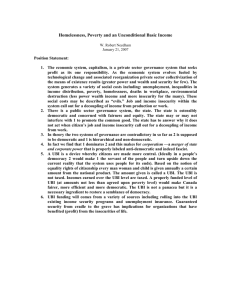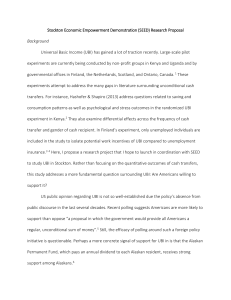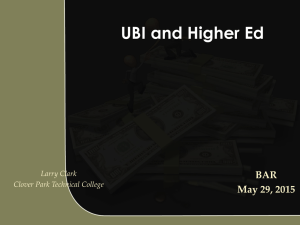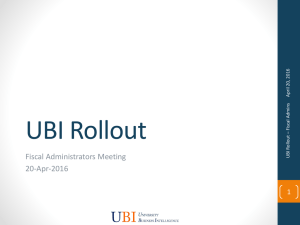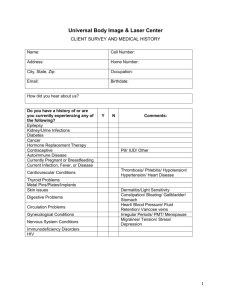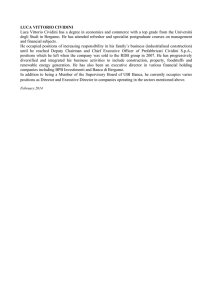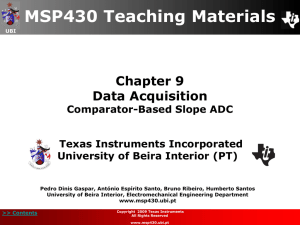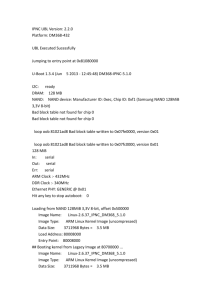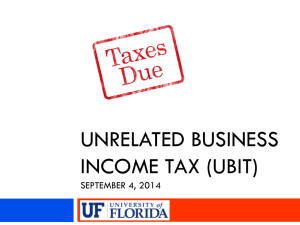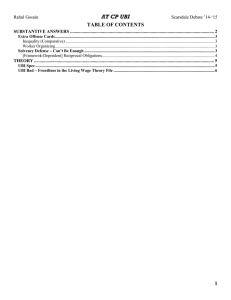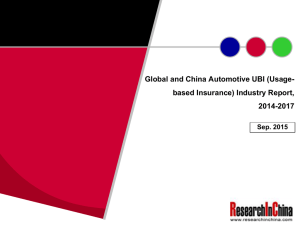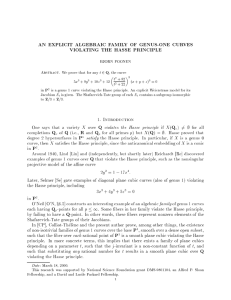Case Studies: Updated 11/19/09 1. The OneCard is the official photo
advertisement
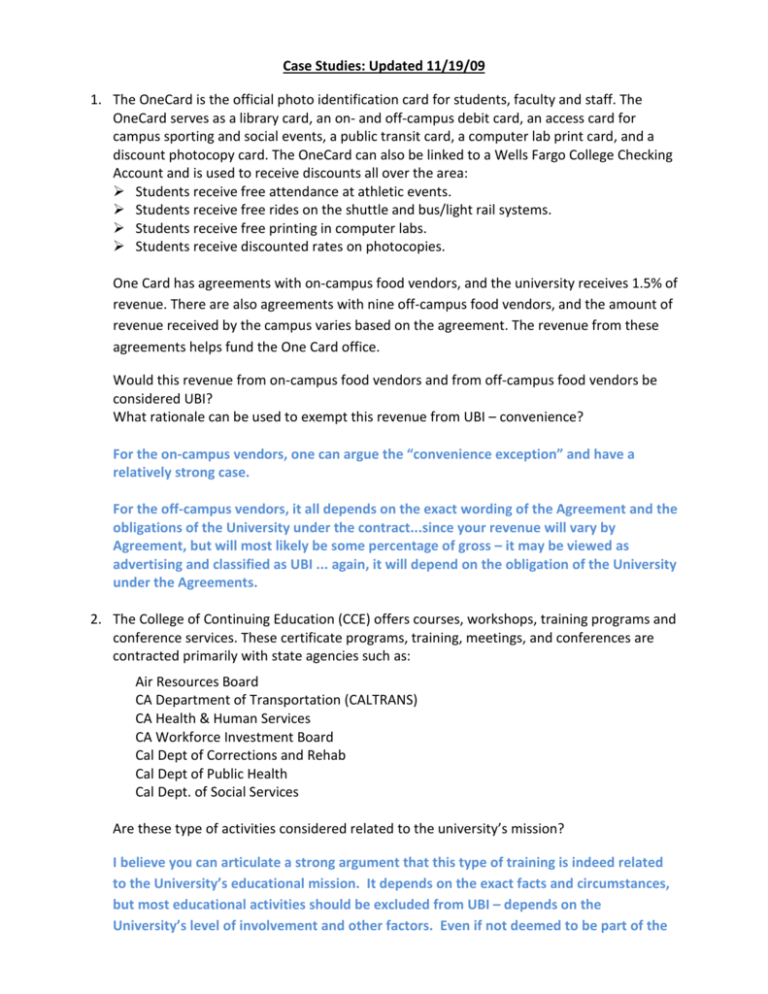
Case Studies: Updated 11/19/09 1. The OneCard is the official photo identification card for students, faculty and staff. The OneCard serves as a library card, an on- and off-campus debit card, an access card for campus sporting and social events, a public transit card, a computer lab print card, and a discount photocopy card. The OneCard can also be linked to a Wells Fargo College Checking Account and is used to receive discounts all over the area: Students receive free attendance at athletic events. Students receive free rides on the shuttle and bus/light rail systems. Students receive free printing in computer labs. Students receive discounted rates on photocopies. One Card has agreements with on-campus food vendors, and the university receives 1.5% of revenue. There are also agreements with nine off-campus food vendors, and the amount of revenue received by the campus varies based on the agreement. The revenue from these agreements helps fund the One Card office. Would this revenue from on-campus food vendors and from off-campus food vendors be considered UBI? What rationale can be used to exempt this revenue from UBI – convenience? For the on-campus vendors, one can argue the “convenience exception” and have a relatively strong case. For the off-campus vendors, it all depends on the exact wording of the Agreement and the obligations of the University under the contract...since your revenue will vary by Agreement, but will most likely be some percentage of gross – it may be viewed as advertising and classified as UBI ... again, it will depend on the obligation of the University under the Agreements. 2. The College of Continuing Education (CCE) offers courses, workshops, training programs and conference services. These certificate programs, training, meetings, and conferences are contracted primarily with state agencies such as: Air Resources Board CA Department of Transportation (CALTRANS) CA Health & Human Services CA Workforce Investment Board Cal Dept of Corrections and Rehab Cal Dept of Public Health Cal Dept. of Social Services Are these type of activities considered related to the university’s mission? I believe you can articulate a strong argument that this type of training is indeed related to the University’s educational mission. It depends on the exact facts and circumstances, but most educational activities should be excluded from UBI – depends on the University’s level of involvement and other factors. Even if not deemed to be part of the University’s own education mission, the income might still be excluded under the “rental exception.” – renting the classrooms. 3. Downtown campus classrooms are rented out to various commercial businesses for their own promotional and educational events. Use of personal equipment is separately charged. Is the 10% (and up to 50%) rule for personal property use applied to each event, each renter’s cumulative total (some renters repeat the use of the classrooms), or the combined rental income total in a year? The 10% vs. 50% rule is based upon each specific event...not the cumulative total for the entire year. 4. University Development has established a sub-department called Alumni Relations. The department generates revenue by the sale of affinity cards and commercial insurance, and through alumni fundraising events. Affinity card programs and insurance sales to alumni generate revenue of about $25K that is directly paid by the affinity program to Alumni Relations. Is this revenue subject to UBIT? Generally the “royalties” received from affinity card programs are NOT subject to UBI under IRC section 512(b)(2). However, it really depends on the amount of the involvement of the University in assisting the credit card companies to market and process the credit cards. As for the commercial insurance, if you are merely providing names for outside 3rd party insurance company to use in its own marketing efforts, probably not UBI under the same “royalty” theory applicable to affinity cards. If, however, you are more involved in the sale of the insurance to the extent that you are really running a co-venture with the commercial insurance company, it is likely to be subject to UBI. 5. Department of Public Safety (DPS) sells fingerprinting services both to the CSU and non-CSU communities under a service contract with the local police department. The service contract encourages extending the service to the non-CSU people in the neighborhood, but there is no requirement to do so. The Public Safety Department generates 2/3 of the total fingerprinting service revenue ($88K) from the general public and 1/3 from the CSU users. DPS hires a student assistant and a staff member who primarily work for the fingerprinting service. Additionally, there is an indirect administrative overhead charge. DPS advertises the service by posting the service in the public offices (such as Department of Justice or the police department). Is the revenue derived from this activity UBI? Generally, the sale of fingerprinting services to CSU students would be considered a normal activity expected to be taken by the University for all of its enrolled students – therefore not subject to UBI. With respect to non CSU students, this is a more difficult issue and the result could be argued in either direction. Such revenue would not be related to the University’s mission. However, there is another lesser known exception from UBI if the activity in question “lessens the burdens of government.” 1.501(c)(3)-(1)(d)(2) and GCM 37401. To determine whether an activity qualifies for this exemption, it is first necessary to identify the functions that the governmental unit considers to be its burdens and, second, under what conditions an organization’s activities are to be recognized as actually “lessening” such burdens. I believe that such fingerprinting functions have generally been carried out by local police departments and other governmental entities and CSU accepting that government burden – even while still deriving revenues from the performance of the fingerprinting services – would not be subject to UBI under the above state Treasury regulations. 6. The following activities are carried on by a campus bookstore. What are the UBIT implications for: - An off-campus shop selling items such as sweaters, cups, etc. that we carry at our oncampus bookstore. This venue's major customers are the general public. If the shop is not on campus and the sales are mostly to the general public, such sales are generally subject to UBI because it is not for the convenience of the University patrons. - An online website selling items other than textbooks, which most likely are also purchased by the public. If you are actually able to track the sales, those items sold to the students, faculty and employees are not taxable if they would otherwise fall under the convenience doctrine...while those sales to the general public are subject to UBI. - Books that we buy back or that are not sold which are put on Amazon for sale. These are also sold to the public. These are generally not subject to UBI because these items were originally used (or intended to be used) solely in the University’s exempt function. - High priced items such as laptops that are sold to non-students/non-faculty members. Generally subject to UBI, even if sold from an “on-campus” bookstore. - Concessions sold at concerts and other third party events. As a general rule, if the event itself is subject to UBIT, the concession sales are also subject to UBI. Depends on how the activities are structured. - Commission received from a catering company to which we refer parties renting our facilities. Such commissions are typically viewed as akin to an advertising activity. If, however, the list of approved vendors is numerous (more than 10 or so) and the parties can select with no influence by the University – such “commissions” might be able to be reclassified as a sponsorship or royalty – although the IRS may likely voice some disapproval.
